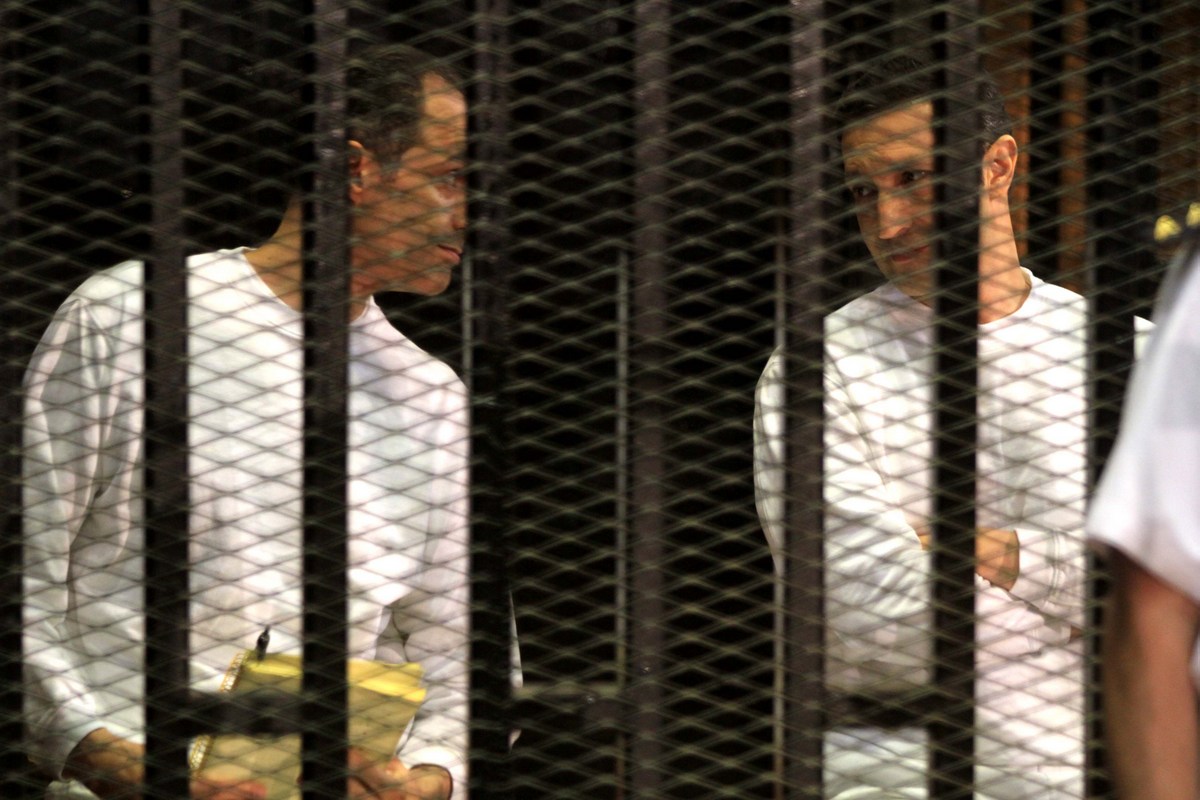Egypt is politically at a crossroads, and it is important to attempt to look ahead and predict the most plausible forms of regime in the post-Mubarak era. As a rule, speculating about the future – the future of states, societies, social phenomena, etc -is like venturing into the unknown. This is why futuristic speculation in social sciences was described by an analyst as the nightmare of scholars.
However, the difficulty of the mental exercise (and the great deal of arbitrariness it involves) is no excuse for abandoning the important question: What kind of regime will succeed the Mubarak regime, which has ruled Egypt for the past 28 years? And what would be the political and economic implications of these regimes? The most plausible scenarios are:
First, the takeover of power by Gamal Mubarak through the facade of a multi-candidate electoral process is a huge possibility.
More than any other possibility, this scenario ensures a perpetuation of the current policies of President Hosni Mubarak. In foreign relations, Gamal would intensify Egypt s connectedness to, and dependence on, the US, Europe and international financial institutions. Peace with Israel would also endure, along with Egypt s efforts to find a comprehensive solution to the Arab-Israeli conflict. Leadership in the Arab world, a la Nasser s style, would not be revived, but cordial relations with conservative Arab states, such as Saudi Arabia and Jordan, would be maintained.
In addition, if Gamal Mubarak became president, economic policy would further shift to the right. Privatization would be accelerated, subsidies cut and greater incentives and benefits provided to the business class. The influence of this class in Egyptian politics would reach extraordinary levels. Businessmen s presence in, and perhaps control of, the ruling party and cabinet would be strongly reminiscent of the pre-1952 days.
The Muslim Brotherhood will be on the winning side under this regime. Because of Gamal s realization that a political price must be paid to mute the MB, the group may be permitted to enjoy a wider margin of political action, perhaps within the framework of a legal political party.
Though Gamal would try to project a sense of democratic transition as a gesture of goodwill to skeptical Egyptians, his regime s stark lack of legitimacy ensures a continuation of the dynamics of authoritarian rule. In the face of civil unrest and dissidence, the routine resort to the iron fist would be sustained.
Secondly, the military establishment has for decades been the major source of change in the Third World. The instability that would likely follow Gamal s rise to power could induce some elements within the military establishment to get hold of power.
Traces of a nationalistic foreign policy would most probably follow. The military hegemony of Israel in the Middle East is a source of embarrassment, and would likely be contested, leading to a rise in tensions with Israel and the United States. However, the indispensability of US weapons and training to the Egyptian army guarantee that these tensions would not grow out of control. The efforts to develop nuclear technology would also be accelerated.
Efforts at transition to genuine democratic rule would be shunned. To legitimize their rule and circumvent calls to return to barracks , the military junta would try to provide real, visible benefits to the sizeable middle class, such as widening welfare programs, or putting an end to the drive towards neoliberal policies. These measures would entail no return to the socialist policies of the 1950s and 1960s, but the need to appease the general public to bolster their precarious rule would bring the policies of the ruling elite closer to middle and lower classes.
Third, the possibility of the Muslim Brotherhood (MB) seizing power is small, but should not be ruled out altogether. The MB is the largest, and most organized, opposition bloc in Egypt. At times of political turmoil, it would aspire to fill political gaps, either independently or in cooperation with other opposition parties.
Islamization of politics and society would follow. Since the concerns of Copts and international powers would be taken into consideration, the process would be both gradual and tacit.
Closer diplomatic ties with Iran and Hamas would be sought, inevitably at the cost of strained relations with Washington and Tel Aviv. But a total breakaway with the US is beyond the wish, or even the ability, of this regime. Domestically, although lip service would still be paid to democracy and the rule of law, a blend of democracy, theocracy and authoritarianism would determine political action.
Nael M. Shama, PhD, is a political researcher and freelance writer based in Cairo. He could be reached at: [email protected]



